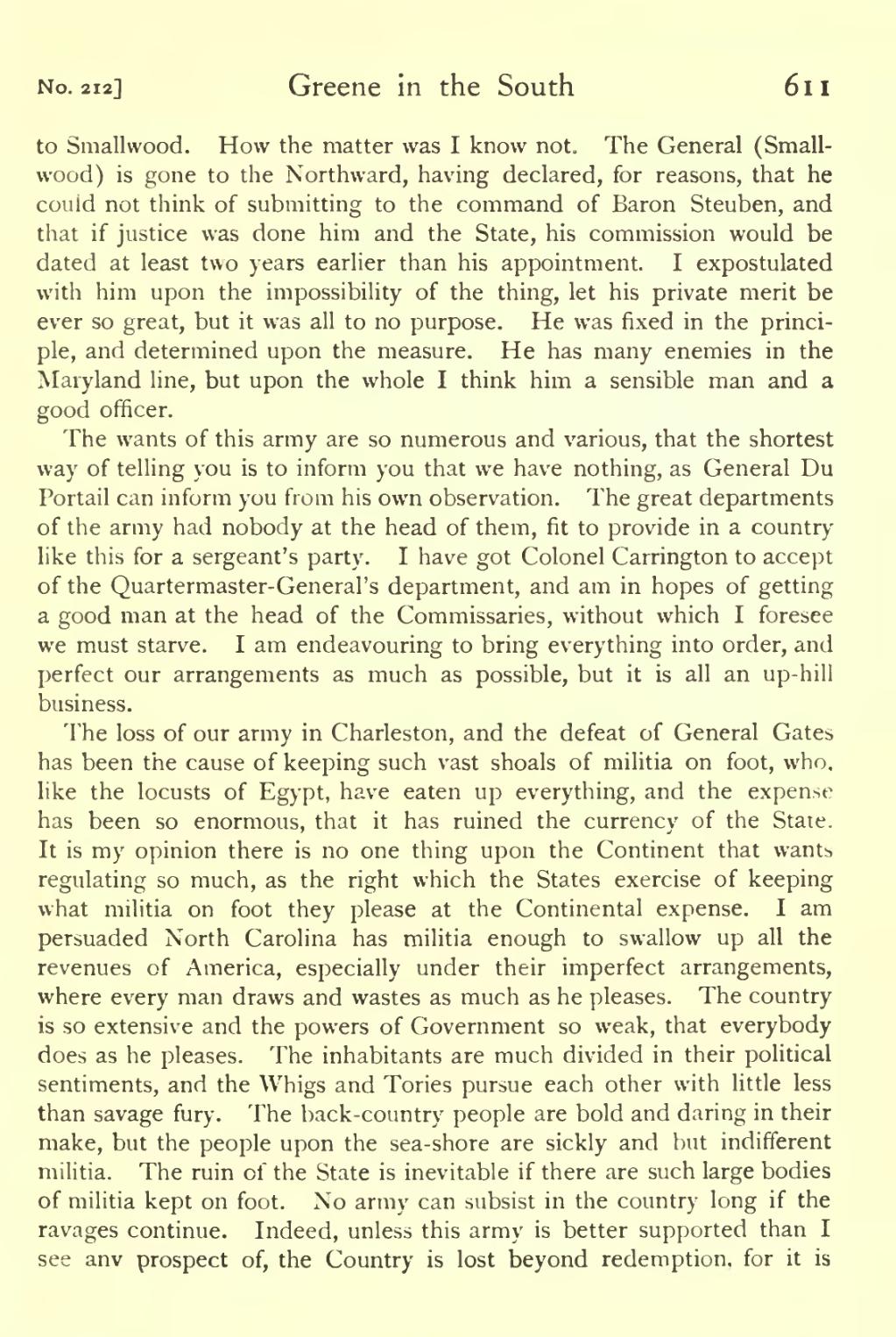to Smallwood. How the matter was I know not. The General (Smallwood) is gone to the Northward, having declared, for reasons, that he could not think of submitting to the command of Baron Steuben, and that if justice was done him and the State, his commission would be dated at least two years earlier than his appointment. I expostulated with him upon the impossibility of the thing, let his private merit be ever so great, but it was all to no purpose. He was fixed in the principle, and determined upon the measure. He has many enemies in the Maryland line, but upon the whole I think him a sensible man and a good officer.
The wants of this army are so numerous and various, that the shortest way of telling you is to inform you that we have nothing, as General Du Portail can inform you from his own observation. The great departments of the army had nobody at the head of them, fit to provide in a country like this for a sergeant's party. I have got Colonel Carrington to accept of the Quartermaster-General's department, and am in hopes of getting a good man at the head of the Commissaries, without which I foresee we must starve. I am endeavouring to bring everything into order, and perfect our arrangements as much as possible, but it is all an up-hill business.
The loss of our army in Charleston, and the defeat of General Gates has been the cause of keeping such vast shoals of militia on foot, who, like the locusts of Egypt, have eaten up everything, and the expense has been so enormous, that it has ruined the currency of the State. It is my opinion there is no one thing upon the Continent that wants regulating so much, as the right which the States exercise of keeping what militia on foot they please at the Continental expense. I am persuaded North Carolina has militia enough to swallow up all the revenues of America, especially under their imperfect arrangements, where every man draws and wastes as much as he pleases. The country is so extensive and the powers of Government so weak, that everybody does as he pleases. The inhabitants are much divided in their political sentiments, and the Whigs and Tories pursue each other with little less than savage fury. The back-country people are bold and daring in their make, but the people upon the sea-shore are sickly and but indifferent militia. The ruin of the State is inevitable if there are such large bodies of militia kept on foot. No army can subsist in the country long if the ravages continue. Indeed, unless this army is better supported than I see any prospect of, the Country is lost beyond redemption, for it is
